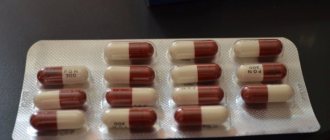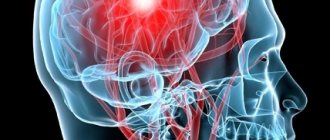How does heroin work?
Heroin belongs to the category of semi-synthetic fast-acting drugs that affect not only the physical, but also the psycho-emotional state. To achieve a narcotic effect, heroin is used for smoking, in inhalation form (by inhalation), and also for intravenous administration. The injection method of administering the drug is the most dangerous, since the narcotic effect is observed after 20-30 seconds, and addiction develops in a short time.
Heroin, like other drugs, affects serotonin-sensitive receptors, which causes a feeling of happiness and euphoria. After the next dose is administered, a feeling of permissiveness and openness appears, and such a quality as sociability is activated. After a while, the addicted person stops feeling euphoria and loses interest in what is happening. The danger of any addiction, and in particular heroin addiction, is that tolerance to the drug quickly disappears, but it is replaced by addiction, the need for regular increases in the dosage of the drug.
In addition to the drug itself, the mixture called heroin contains additional impurities that negatively affect the human body.
What is heroin?
Another name for heroin is diamorphine.
It is an opioid, a semi-synthetic analogue of morphine, synthesized in 1898 by German chemist Felix Hoffmann. It was assumed that diamorphine would be used as a less dangerous analogue of morphine. In those days, against the background of wars and not very developed medicine, opiates were prescribed as painkillers to almost everyone, and the epidemic of drug addiction caused serious concerns on the part of doctors. Diamorphine had the same property as morphine: it suppressed pain of any intensity. In addition, it suppressed the respiratory and cough centers, and as a result, it helped with coughs, so they began dispensing it as a syrup in pharmacies without a prescription to absolutely everyone.
However, there was little heroic in diamorphine - it led to terrible addiction. A huge number of people of all ages relied on the “harmless” cough syrup, and by 1913 the production of the drug was suspended. However, almost until the end of the 20th century, it was sold in some countries by prescription: for example, in Germany you could buy heroin in a pharmacy until 1971.
Consequences of heroin use
In addition to information on how to overcome withdrawal from heroin addiction, it is important to familiarize yourself with the consequences of addiction. Drug addiction does not go away without leaving a trace, both on a psychological and physical level.
The main consequences of heroin addiction include:
- A sharp increase in the risk of infection with viral hepatitis and HIV infection.
- Decreased immunity and high susceptibility to any infectious diseases.
- Severe damage to the cells of the liver, brain and cardiovascular system.
- Menstrual dysfunction in women and suppression of erectile function in men.
- Digestive disorders. Most often, heroin addicts experience chronic constipation.
Why is heroin dangerous?
When used, heroin withdrawal occurs when trying to quit the substance. Reduced tolerance and increased craving for a synthetic substance prevents a person from independently giving up a dangerous habit.
With prolonged use, heroin changes the psychological state and physical health of a person. Common consequences of addiction:
- high risk of infection with hepatitis C and HIV;
- complete lack of immune defense, increased susceptibility to any infections;
- irreversible changes in the structure of the brain, fibers of the nervous system, liver cells, severe damage to the heart muscle, chronic indigestion;
- development of pathologies of the reproductive system, infertility.
With regular heroin use, dangerous complications develop in a short time. The first negative effects can be felt after several months of injecting or smoking the drug.
How does withdrawal from heroin occur?
Until an addicted person misses the next dose, he does not know what kind of withdrawal from heroin awaits him, and how bad it can be. The so-called withdrawal, caused by a sharp refusal to administer the next dose of a narcotic drug, occurs in several stages. The predicted outcome of withdrawal treatment depends on factors such as the timeliness of seeking professional help, the duration of drug use, and the severity of addiction. Any person who becomes dependent on heroin goes through a withdrawal phase.
Stage 1
This phase of withdrawal from addiction begins already on the first day of absence of the next dose, when the effect of the drug has ceased. An addicted person has an urgent need for another dose. The main symptoms of the first stage of withdrawal include psychological discomfort, which is accompanied by apathy and a sharp deterioration in mood. At the first stage, anxiety is felt and sweating is activated. Sleep disorders are also observed, the person feels nervous and cannot sleep for a long time.
Stage 2
On the second day after stopping the drug, characteristic physical signs of withdrawal appear. In the initial stage, these symptoms resemble those of a cold. Characteristic signs include runny nose, chills, sneezing, watery eyes, and increased sweating. The alternation of chills and sensations of heat is also characteristic. A person feels tension in the muscles of the whole body, appetite disappears, the reaction of the pupils to light partially disappears, and they dilate.
Stage 3
On the third day, severe nausea appears, which can be supplemented by diarrhea and vomiting. The general condition of a person resembles food poisoning. The symptoms are complemented by physical impotence. There is also an increase in heart rate and an increase in blood pressure. Convulsive seizures may occur periodically.
Stage 4
This stage of heroin withdrawal is accompanied by the appearance of physical pain. This condition is associated with muscle, bone and joint pain. Another characteristic sign of stage 4 withdrawal is itching in the area where drugs were injected. When searching for a position that would relieve pain, a person does not find it. At this stage, self-control is lost and the instinct of self-preservation is suppressed. There is weight loss, the skin becomes pale or gray. The patient feels fear of imminent death. For as many days as heroin withdrawal continues, the person will be at risk of death.
Fig.: 4 stages of heroin withdrawal
How does a person behave when on heroin?
The behavior of heroin addicts depends on the length of use, the dose, and the quality of the drug itself. In the first stages of addiction, heroin causes a state of euphoria and sociability. A person on heroin can tell stories for hours, and at the same time he can be very open. Over time, euphoria is replaced by calm. In this state, the addict's eyes are usually half-closed. A person is constantly tormented by thirst, so most often a heroin addict has a bottle of water in his hands.
Covering the eyes is associated with the fact that a person on heroin seems to be in a state of half-asleep, on the verge between two realities. The pupils of heroin become constricted due to lack of reaction to light. As the facial muscles lose their tone, an expression of indifference and alienation appears. Also, when taking large doses of heroin, vomiting may occur, but it is perceived by the addict as something natural. Many even enjoy this process.
How long does heroin withdrawal last?
Withdrawal from heroin lasts individually for each person. The increase in clinical symptoms continues for 3-4 days. Residual signs of the so-called withdrawal syndrome (without special medical care) may disappear only after 10-14 days. How long heroin withdrawal lasts depends on the duration of drug use, as well as the person’s general condition. Heroin addiction results in more severe withdrawal symptoms than other drug addictions.
There is also a list of residual symptoms of the so-called withdrawal syndrome in heroin addiction. Such signs include mental disorders, metabolic disorders, and sleep disorders. Such disorders can last for several months.
Peculiarities of withdrawal in various forms of drug addiction
Opium withdrawal syndrome is the most severe. Its duration is up to 5–10 days, and residual effects in many patients persist for 1.5–2 months, despite intensive treatment. These include:
- a periodic desire to take another dose;
- depression, weakness, a state of general dissatisfaction with oneself, one’s appearance, actions, and the actions of others;
- eating disorders;
- insomnia: the rhythm of sleep is unstable, frequent awakenings and nightmares are typical;
- intolerance to mental and physical stress;
- periodic chills or hot flashes;
- sneezing, eye inflammation, rhinitis.
Withdrawal occurs similarly when addicted to modern “designer” stimulants (meth, “salts,” etc.).
Abstinence when quitting smoking “grass” is much easier to bear, sometimes the patient can even do without the help of a doctor. In such cases, withdrawal syndrome manifests itself predominantly as psycho-emotional disorders: dysphoria, excessive irritability, depression, and unreasonable anxiety. Sometimes unexpressed somatovegetative disorders are possible: dry mouth, thirst, deterioration or, conversely, increased appetite.
Getting out of heroin withdrawal at home
Regardless of how long a person has been dependent on a drug, he cannot avoid withdrawal symptoms in the absence of the next dose. It is important for relatives and loved ones of a drug addict to remember that withdrawal from heroin addiction is a serious condition that poses a direct threat not only to health, but also to human life.
Going through withdrawal from heroin at home is impractical and even dangerous. Effective treatment for drug addiction can begin in a drug treatment clinic. Relatives of an addict often make mistakes: they resort to using traditional medicine methods or, in a fit of desire to help the addict, they can offer another dose of the drug.
Relatives and loved ones of a drug addict in a state of heroin withdrawal should take into account the following nuances:
- In a state of withdrawal, a person is dangerous to the people around him, since he loses self-criticism and the instinct of self-preservation. When withdrawal from heroin develops, no matter how much they try to pacify the addict on their own at home, it turns out to be futile.
- If you show leniency towards a drug addict and provide him with a dose of the drug, then during the next withdrawal he will do everything possible to get the dose again.
- Medicines from the so-called home medicine cabinet are ineffective for relieving heroin withdrawal.
Alcohol also does not help relieve heroin withdrawal symptoms or alleviate a person’s general condition during withdrawal. A drug addict needs to undergo comprehensive treatment in a clinic and rehabilitation center. Drug addiction is a disease that requires treatment.
What to do when a drug addict goes through withdrawal?
If one of your loved ones or acquaintances suffers from drug addiction, then you need to know what to do when a drug addict goes through withdrawal.
- Never offer a new dose. Withdrawal indicates that the body has begun to cleanse itself of the drug, so a new dose will only worsen the situation.
- Try not to be near the patient during an exacerbation. The aggression that appears will definitely be splashed out on you not only morally, but also physically. Remember, in this state a person ceases to understand who is in front of him.
- Call doctors as soon as possible. Very few drug addicts can survive withdrawal on their own. Specialists will help relieve pain symptoms and provide subsequent qualified psychological assistance.
Considering that heroin is often used with diphenhydramine and alcohol, despite the fact that this hard drug already kills more often than others, it is quite difficult to cleanse the body of it. It requires many hours of administration of cleansing and restorative drugs.
Treatment at the clinic's inpatient facility
If a person has developed withdrawal from heroin addiction, only a narcologist can answer how to get rid of this condition. Professional withdrawal from a serious condition is carried out using special medications that improve physical condition and accelerate the process of removing drug residues from the body. Tranquilizers are prescribed to relieve pain and convulsive symptoms. In order to normalize the mental state, a short course of antidepressants can be prescribed, as well as amino acids that have a beneficial effect on the activity of the central nervous system.
In addition, cardioprotectors, hepatoprotectors, hormonal agents, psychostimulants, and multivitamin complexes are prescribed as part of maintenance therapy.
An important aspect of treatment is detoxification, which includes infusion therapy, hemodialysis, enterosorbents, and gastric lavage.
Heroin addiction: signs, effects on the body
Symptoms of heroin addiction are not difficult to notice, since the drug affects the entire body. Heroin:
- slows down the body's reaction;
- provokes a feeling of alienation;
- suppresses brain activity;
- dilates blood vessels;
- causes drowsiness, emotional peace.
Clear signs of heroin addiction:
- significant change in behavior, strong secrecy;
- sudden mood swings;
- insomnia, frequent daytime naps (if this is not caused by the specific activity);
- lack of appetite, rapid weight loss;
- pupils that are too wide or narrow;
- hoarse voice;
- shallow breathing;
- slow speech, chaotic movements of arms and legs;
- disruption of the gastrointestinal tract.
When looking for symptoms in a heroin addict, relatives first examine the veins in the elbows. But keep this point in mind: veins that are constantly pierced with a needle are subsequently overgrown with collagen tissue. Because of this, it becomes impossible to re-pierce. Therefore, experienced drug addicts use alternative places to inject heroin: on the hips, legs, between the fingers.
Socialization of a person after heroin withdrawal
After the improvement of physical condition, the stage of psychological rehabilitation and socialization begins after experiencing heroin withdrawal. This stage of recovery usually takes place in an inpatient rehabilitation center.
At a drug rehabilitation center, a person is helped by:
- understand the reasons for use,
- resolve intrapersonal problems,
- learn to cope with situations that lead to a breakdown,
- reconsider life values and goals,
- learn to build healthy relationships in the family and with others,
- if necessary, acquires professional and labor skills.
It is possible to undergo rehabilitation on an outpatient basis, but in 90% of cases this type of program does not allow the drug addict to achieve long-term remission. It’s hard for a person to be in an environment where everything reminds you of using. A drug addict regularly visits a narcologist, works with a psychologist and psychotherapist, and can attend group classes and auto-training that help reformat thinking and attitudes towards drugs.
Group classes are also organized for relatives of drug addicts. At such trainings, they teach the correct attitude to the problem of drug addiction of loved ones. Without moral support and care from relatives, it is difficult for a drug addict to overcome the craving for drugs and take the right path.
Read reviews from those who have benefited from heroin withdrawal
“I never thought that our family could face such a problem, but we can’t promise it. My nephew began to disappear from home more and more often, we didn’t see him for a long time, we were worried, but we couldn’t do anything. He got involved with bad company, and when we noticed that he began to behave very strangely and suspected the real reason, we fell into despair. The fears were confirmed: drugs. Once, when I came to visit, I found him in a strange state, he was rushing around the house and it was clear that he was suffering greatly. I dialed the number I found on the Internet: it turned out to be the MedExpress center. Specialists quickly arrived at the house, helped our boy, and lo and behold: he agreed to begin full-fledged treatment.”
Tamara A., Moscow
How to cure drug addiction?
In a situation with heroin addiction, we are talking only about inpatient treatment. It must include all the mandatory stages of chemical dependence treatment:
- Complete detoxification.
- Long-term rehabilitation.
- Socialization.
Most likely, in the case of heroin addiction, professional motivation will be needed. During treatment, special attention is paid to restoring all body functions impaired by heroin use. A psychologist has a lot of work to do, because the mental attachment to heroin is very strong.
Heroin
Heroin is a synthetic opiate and is usually used by injection. Which immediately puts the addict at risk of contracting AIDS and hepatitis. After all, very quickly the addiction progresses so much that the patient ceases to worry about everything except the next dose, even his health and life. Therefore, injections are not always made with sterile needles, in other words, the syringe changes hands.
This white or tinted powder introduces the addict into euphoria and bliss, into a state of complete satisfaction, which is characteristic of the action of all opiates. But the price for this is expensive. After several days of use, when the drug is withdrawn, the addict experiences heroin withdrawal. And it lasts much longer than the effect of pleasure.










